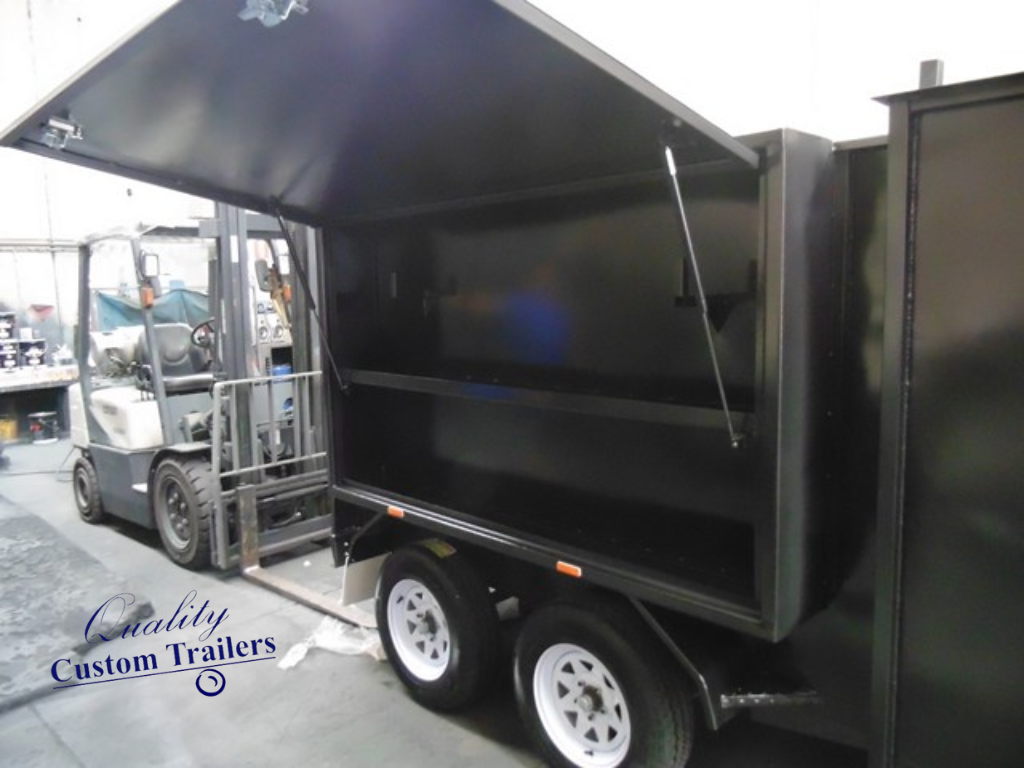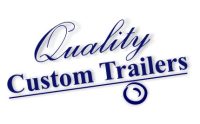Custom trailers stand out from standard options due to their unparalleled flexibility and personalization. Unlike off-the-shelf trailers that come with pre-set features and limited customization options, custom trailers are designed to meet the specific needs of your business. Whether you’re looking for a trailer that can handle unique tasks or one that reflects your brand’s personality, the ability to tailor every aspect of the design—from size and layout to materials and features—makes custom trailers a superior choice.
Why Custom Food Trailers Require Special Considerations
Custom food trailers are a specific type of unique custom trailers that require special considerations due to the nature of their use. Unlike other custom trailers, food trailers must adhere to strict health and safety regulations, which dictate everything from the materials used in construction to the layout of the kitchen equipment. This means that when designing custom food trailers, it’s essential to work with professionals who understand these requirements and can incorporate them into the design.
Choosing the Right Trailer Type for Your Business
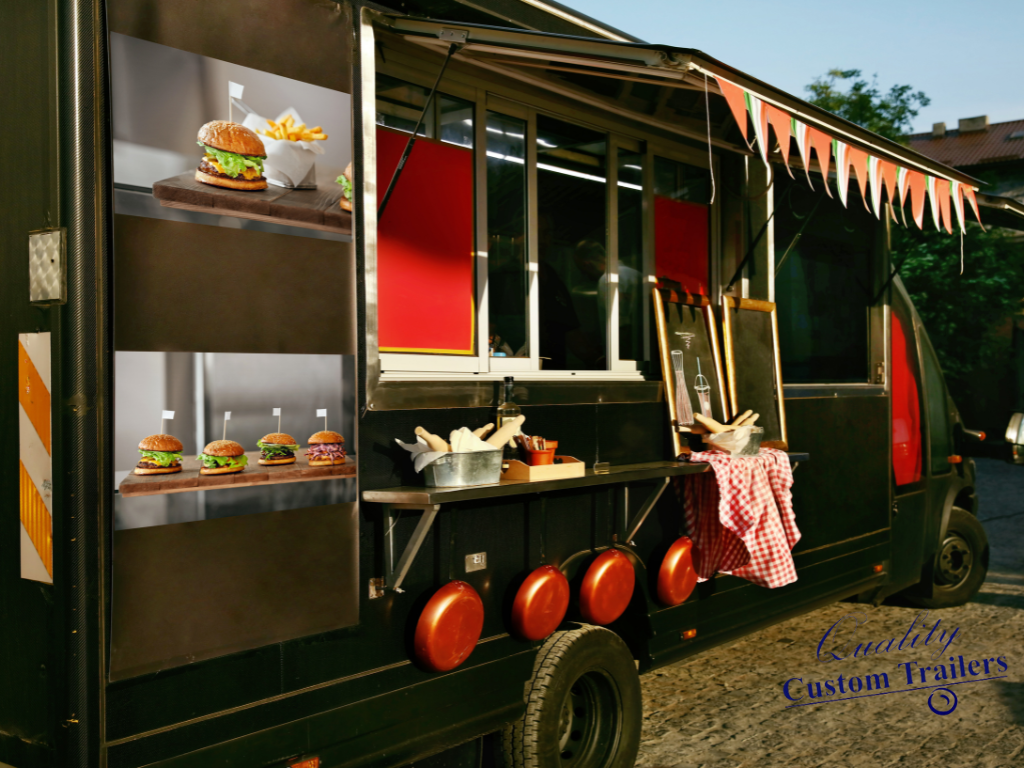
Is a Custom Flat Top Trailer Right for You?
Custom Flat Top Trailers are a versatile option that can be adapted to a wide range of business needs. These trailers are characterized by their flat, open-top design, which allows for easy loading and unloading of goods. This makes them ideal for businesses that need to transport large or bulky items, such as construction materials, vehicles, or equipment. The flat top design also provides a blank canvas for customization, enabling businesses to add features like side panels, ramps, or even a removable canopy.
Comparing Custom Food Trailers to Other Unique Custom Trailers
When deciding between custom food trailers and other unique custom trailers, it’s important to consider the specific requirements of your business model. Custom food trailers are designed specifically for food service, with features like kitchen equipment, serving windows, and storage for ingredients and supplies. They must also comply with health and safety regulations, which adds to the complexity and cost of their design and construction.
Essential Design Elements for Custom Food Trailers
Key Features to Include in Your Custom Food Trailer
When designing custom food trailers, it’s crucial to include features that will ensure smooth and efficient operations. Key features should include a well-equipped kitchen with essential appliances such as grills, fryers, ovens, and refrigerators, all of which should be strategically placed to optimize workflow. Storage is another critical element, with cabinets and shelves designed to hold ingredients, utensils, and supplies within easy reach.
How to Maximize Space in Custom Food Trailers
Space is often at a premium in custom food trailers, so maximizing every inch is essential for efficient operation. Start by considering the flow of work within the trailer—staff should be able to move easily between cooking, prep, and serving areas without crossing paths unnecessarily. To achieve this, it’s important to design a layout that minimizes wasted space and keeps everything within arm’s reach.
Incorporating Unique Features into Custom Trailers
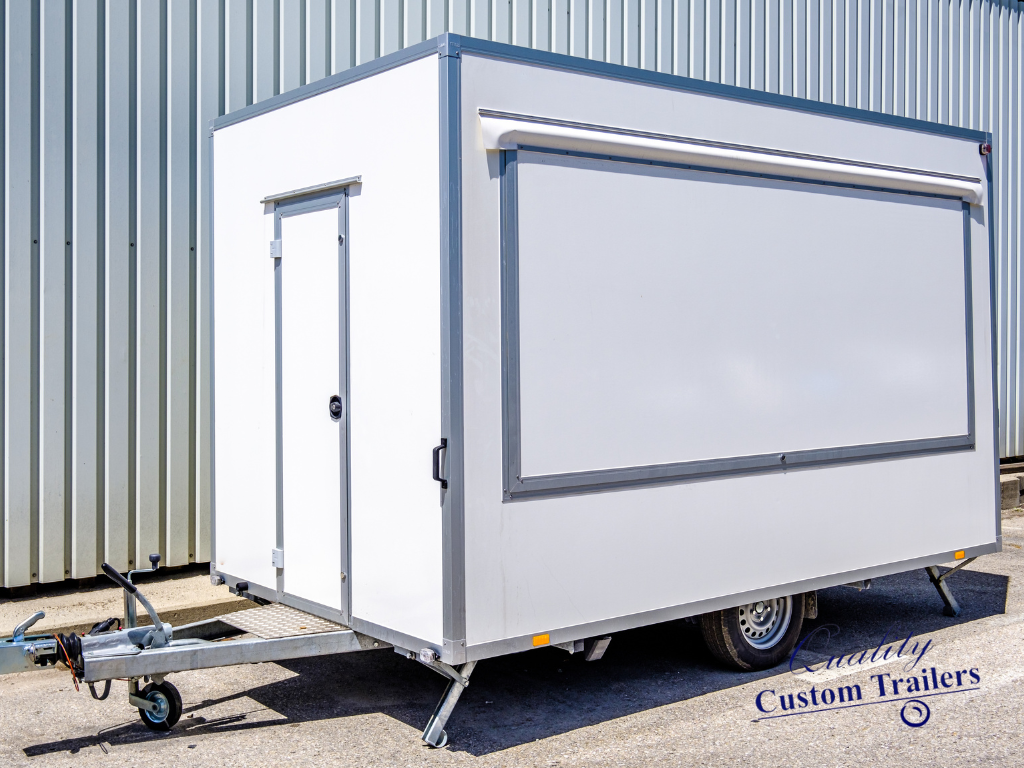
Designing Unique Custom Trailers for Maximum Impact
To ensure your unique custom trailers stand out, it’s essential to incorporate features that not only enhance functionality but also make a strong visual impact. Consider elements like custom paint jobs, graphics, or wraps that showcase your brand’s identity. Eye-catching colors and bold designs can attract attention and make your trailer easily recognizable, helping to draw in customers.
Adding Custom Features to Flat Top Trailers
Custom Flat Top Trailers offer a wide range of customization options to suit various business needs. One popular addition is a removable canopy or awning, which provides protection from the elements and creates a shaded workspace or display area. Another option is to add side panels or gates that can fold down to create additional work surfaces or display areas when the trailer is stationary.
Material and Build Considerations for Custom Trailers
Choosing the Best Materials for Custom Food Trailers
When constructing custom food trailers, selecting the right materials is crucial to ensuring durability, safety, and compliance with health regulations. The materials used must withstand the demands of a mobile kitchen environment, including exposure to heat, moisture, and frequent cleaning. Stainless steel is often the material of choice for kitchen surfaces and equipment due to its resistance to corrosion, ease of cleaning, and non-porous nature, which helps prevent bacterial growth.
How Build Quality Impacts the Longevity of Unique Custom Trailers
The build quality of unique custom trailers plays a significant role in their longevity and reliability. High-quality construction ensures that the trailer can withstand the rigors of regular use, whether it’s a food trailer that serves customers daily or a mobile workshop that transports heavy equipment. Key aspects of build quality include the frame construction, welding quality, and the choice of materials for both the interior and exterior.
Budgeting for Your Custom Trailer Design
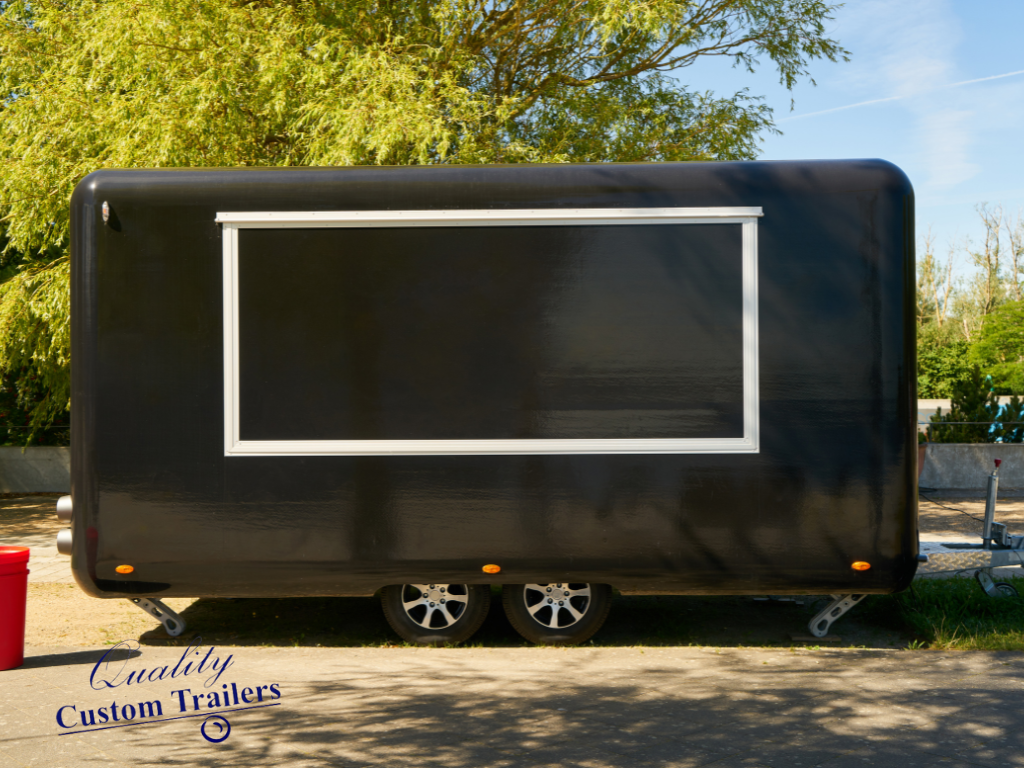
How to Budget for Custom Food Trailers
Creating a budget for designing and building custom food trailers requires careful planning to account for both obvious and hidden costs. Start by considering the basics: the cost of materials, labor, and any specialized equipment you need for your mobile kitchen. It’s important to prioritize essential features that will directly impact your business operations, such as high-quality kitchen appliances, sufficient storage, and a reliable power source.
Cost-Effective Strategies for Designing Unique Custom Trailers
Designing unique custom trailers without overspending requires a strategic approach that focuses on essential features and prioritization. Start by identifying the most important elements that will contribute to the functionality and appeal of your trailer. For example, if your trailer will be used for food service, investing in high-quality kitchen equipment is essential. However, you might choose more cost-effective options for non-essential elements like exterior finishes or decorative features.
Working with Designers and Manufacturers
How to Choose the Right Manufacturer for Custom Trailers
Selecting the right manufacturer to build your custom trailers is critical to ensuring that the final product meets your expectations in terms of quality, functionality, and design. Start by researching manufacturers with a proven track record in building custom trailers similar to what you envision. Look for companies with experience in your specific industry—whether it’s food service, retail, or mobile services—as they will have a better understanding of your unique requirements.
Collaborating with Designers to Create Unique Custom Trailers
Effective collaboration with designers is key to creating unique custom trailers that not only meet your functional needs but also reflect your brand’s identity. Begin by clearly communicating your vision, including specific features, aesthetics, and any branding elements you want to incorporate. The more detailed you can be in your initial discussions, the better your designer will understand your goals.
Legal and Regulatory Considerations
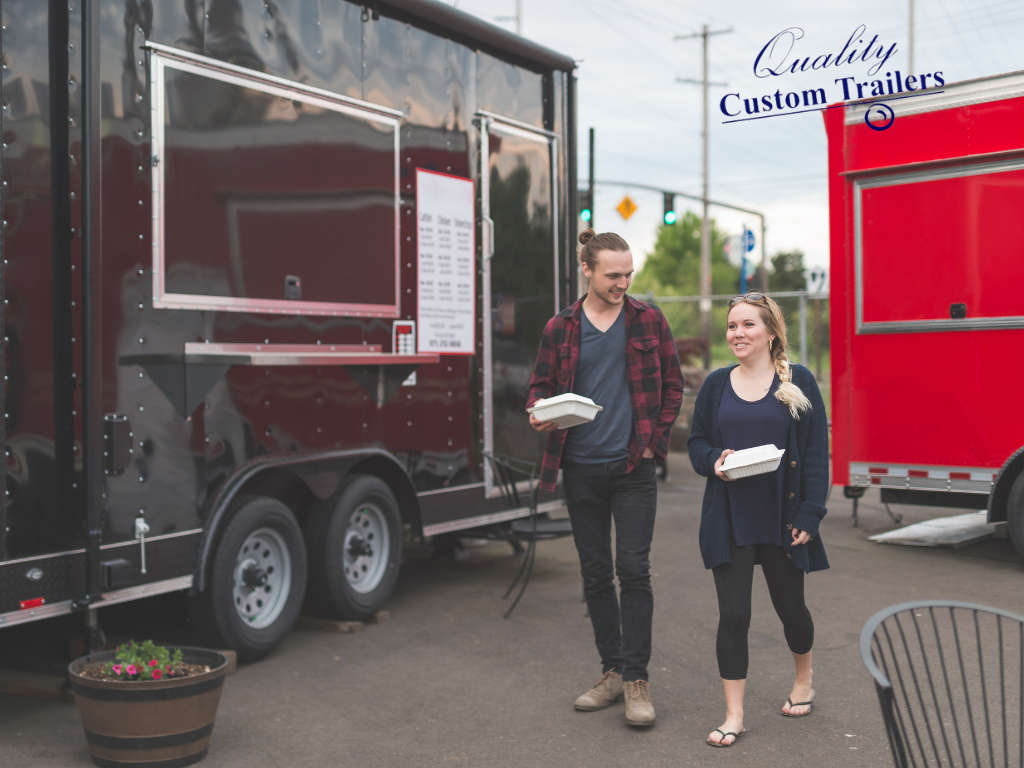
Ensuring Compliance with Regulations for Custom Food Trailers
Operating custom food trailers requires adherence to a variety of legal and regulatory requirements, which can vary by location. These regulations typically cover health and safety standards, including food preparation and storage, sanitation, and equipment safety. It’s essential to ensure that your trailer is designed and built to meet these standards to avoid fines, shutdowns, or other legal issues.
Navigating Permits and Certifications for Custom Trailers
In addition to health and safety regulations, custom trailers—especially those used for commercial purposes—often require specific permits and certifications. These can include roadworthiness certificates, weight and dimension permits, and certifications for any modifications or custom features added to the trailer. The requirements can vary significantly depending on the trailer’s intended use and the region in which it will operate.

